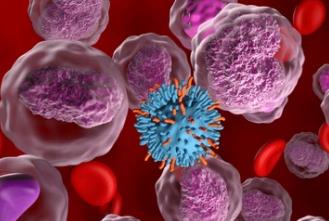The neuroinflammation associated with Parkinson’s disease (PD) has attracted widespread attention due to abnormal protein aggregation, among which glycosylation, as a post-translational modification process that maintains protein stability, plays an important role in this process. Recently, in a research report published in the international journal PNAS Nexus titled ” Changes in tissue protein N-glycosylation and associated molecular signature occur in the human Parkinsonian brain in a region-specific manner”, scientists…
Day: April 26, 2024
FOXO1- Key Protein That Can Control the Lifespan of Car-T Cells

Nowadays, CAR-T cell therapy has completely changed the treatment of certain types of cancer. The longer these CAR-T cells survive in the patient’s body, the more effective their response to cancer becomes. Recently, a research report titled “FOXO1 is a master regulator of memory programming in CAR T cells” was published in the journal Nature. Scientists from institutions such as Stanford University School of Medicine found through their research…
A New Study Has Successfully Constructed a Human Neuron Model That Simulates the Diffusion of Tau Protein Aggregates

In a new study, researchers from the Will Cornell School of Medicine in the United States have developed an innovative human neuron model that can effectively simulate the diffusion of tau protein aggregates in the brain – a process that is responsible for cognitive decline in Alzheimer’s disease and frontotemporal dementia. Through this new model, they discovered novel therapeutic targets that may prevent tau diffusion. This preclinical study is a…
A New Mechanism of Glucocorticoid Inhibition of Inflammation

Cortisone and other related glucocorticoids are highly effective in inhibiting excessive immune responses. But before this, people knew very little about how they did it. Now, in a new study, researchers from Berlin’s Charlotte Medical School, the University of Erlangen, and the University of Ulm have conducted a more detailed exploration of their molecular mechanisms of action. They report that glucocorticoids can reshape the metabolism of immune cells, activating…
A New Mechanism Linking Poor Diet with Increased Cancer Risk

In a recent study, the research team of the National University of Singapore and the Singapore Science and Technology Research Bureau has made groundbreaking progress. These new findings reveal the relationship between cancer risk and poor eating habits and clarify the causal chain between common diseases such as diabetes induced by poor diet and the increased risk of cancer. The breakthrough results of this study are expected to provide strong…
